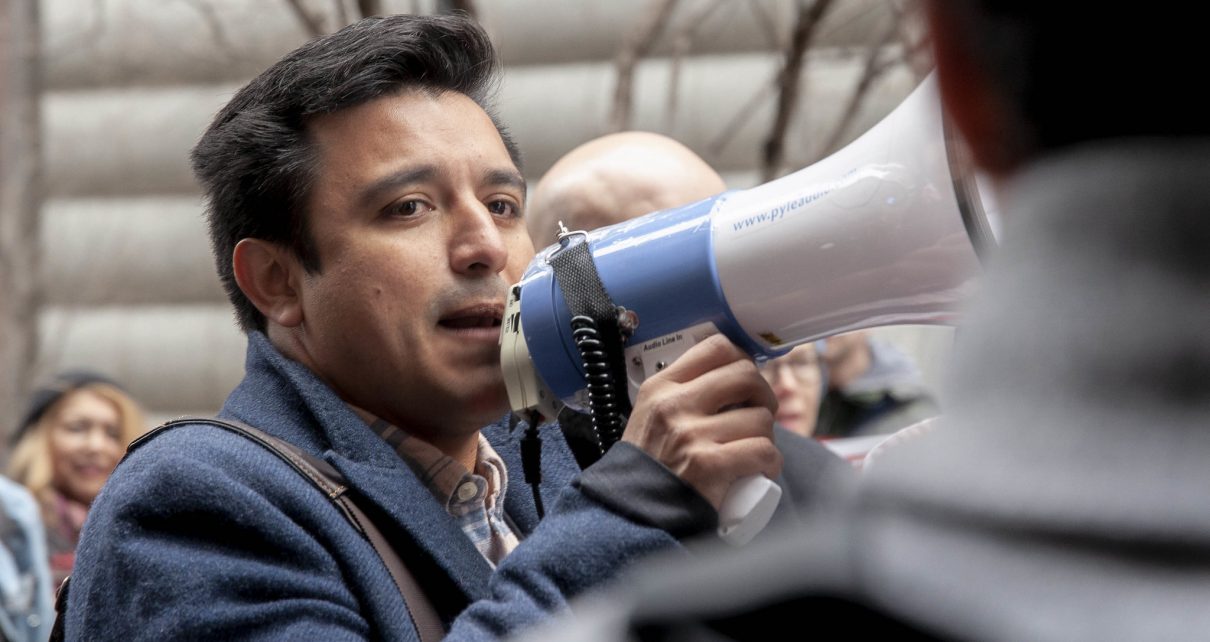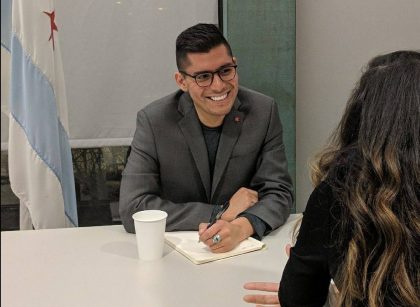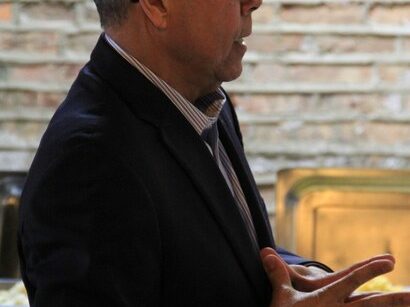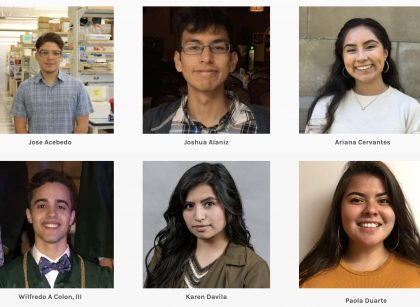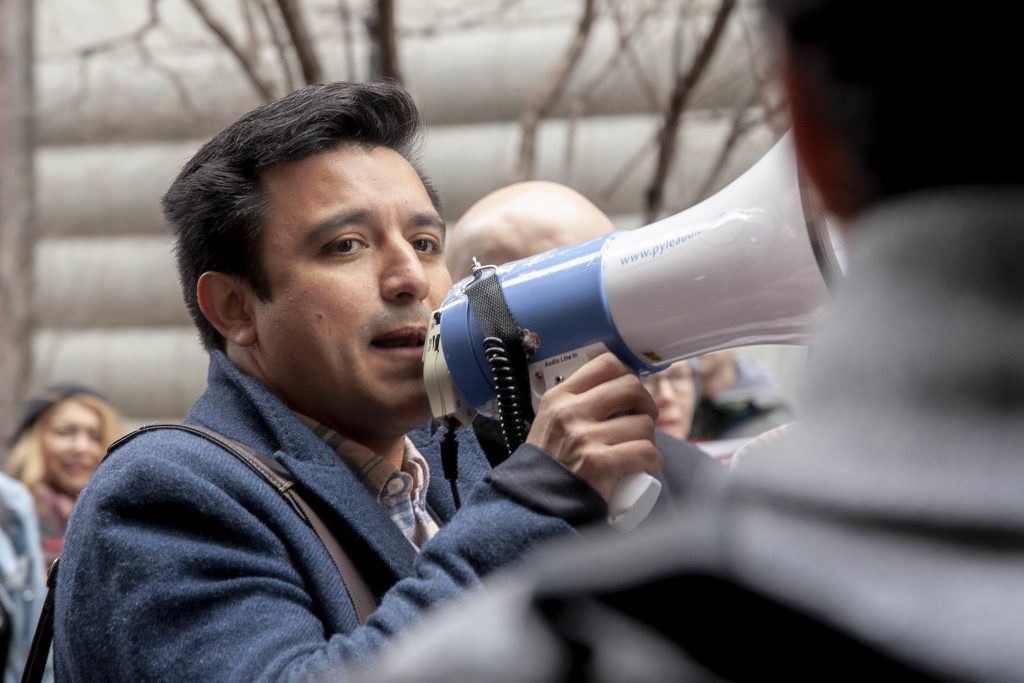
The summer in Chicago has seen historic protests and social unrest, all amid the backdrop of the covid-19 pandemic. The latter’s ripple effect is still impacting city residents and has sparked a months-long fight over what constitutes appropriate community investment.
For the past several months, the Latino Caucus has struggled to enact progressive legislation tied to these events, including citizen oversight of the police and protections against a coming wave of evictions. Citing poor communication and disagreements over constitutionality, various caucus members have clashed with the mayor’s office over how to move forward.
According to Alderman Andres Vazquez (40th), the caucus has three policy committees focused on immigration, housing and education. In addition to evictions protection and re-opening schools, Vazquez and others are concerned about the city being on the front lines over issues related to immigration and policing.
For those that support enactment of a Civilian Police Accountability Council (CPAC), those measures involve getting (and keeping) police out of schools, re-investing money allocated to the police budget into other civil services, and most importantly enacting a civilian oversight board. Currently the police account for nearly $1.8 billion, or 37 percent of Chicago’s operating budget. Many aldermen would like military grade weapons to be kept out of the hands of police. Vazquez cites the need for implementing the federal consent decree that the city entered into last year; so far Chicago has missed 70 percent of the reform deadlines.
“It’s not about individuals and officers,” said Vazquez. “Plenty of officers risk their lives and do the best they can to keep [citizens] safe. My issue is with the system.”
There are several paths to CPAC reform. One would be through a city council vote; 34 votes out of 50 council members would be needed for legislation to be veto-proof; at the moment, 19 support the bill, including 9 of the 13 Latino Caucus members. According to Vazquez there is the possibility of a referendum vote but that will likely not take place this year.
A third way would be a change to the state constitution, but that would obviously extend the issue to legislators in Springfield; CPAC advocates have yet to lobby state officials to enact this kind of change.
For a long time the mayor’s office had shown preference for an alternate reform plan, GAPA (Grassroots Alliance for Police Accountability), but even those plans have been tabled for the time being. “We don’t see a lot of representation in her administration,” says Alderman Byron Sigcho-Lopez (25th). “There are a lot of the same insiders… we need to move forward with a different approach if we want to see structural change.”
It takes a coalition
The fight over legislation is not just about the city council vs the mayor’s office but a matter of coalition building among various caucuses, which has yet to be realized. Alderman Vazquez expressed regret that joint efforts on police reform between the members of the Latino and African American caucuses is “not where it should be”, in part because even within caucuses there is uncertainty over “where to go next.” Shifting demographics have allowed incoming Hispanics to nearly match the number of African Americans in Chicago, which is going down. The Latino Caucus itself is not a monolith, with overlapping membership in the Progressive Reform and Socialist caucuses.
Alderman Rossana Rodriguez-Sanchez (33rd) is working with progressive caucus to try and get a bill in for next city council meeting about model after the programs using Oregon and Denver to try to create a crisis response system to take the pulse of what police actually face.
Despite overlapping concerns about police overreach—where it be over undocumented immigrants or racial profiling—there is latent tension that came to a head in June, when community members in Pilsen and environs had to step up to prevent gang violence and harassment of African Americans in the area.
Within the Chicago Latino community there are differences of opinion over the role of law enforcement and even immigration policies. “There are populations in the Latino community that are conservative,” Vazquez says, “and that once they’ve gotten their citizenship they say, ‘Hey, why can’t you do it?’” Vazquez says Latinos must recognize the shared struggle for justice that encompasses police brutality and deportation cases.
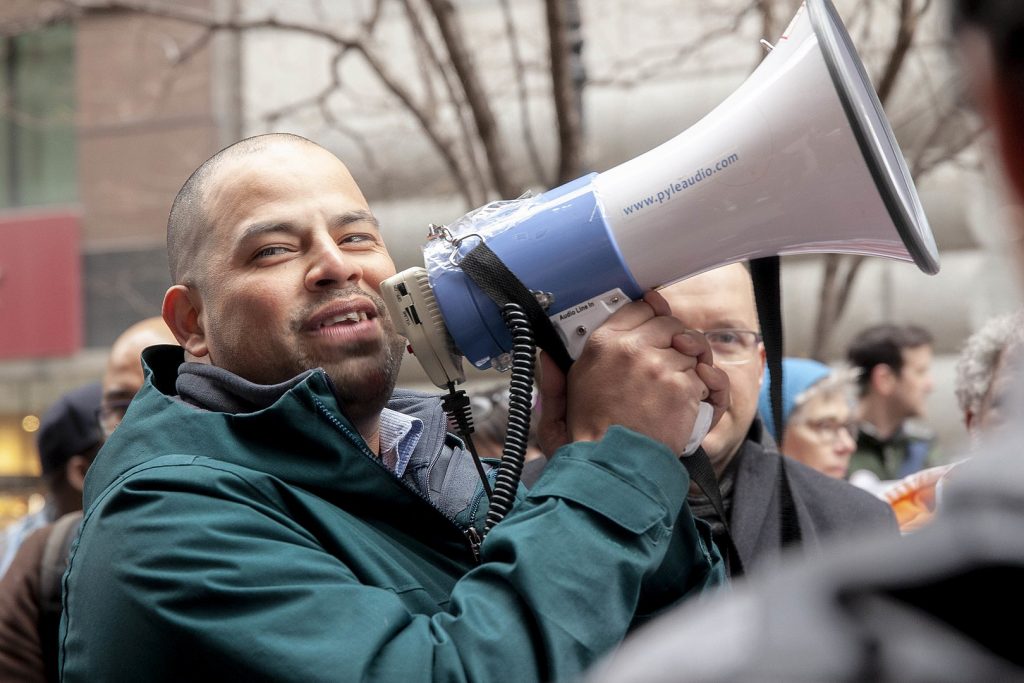
The effect of federal agents in Chicago remains murky, part of which is due to perceived equivocation by the mayor’s office. According to Ald. Rodriguez-Sanchez, the city said no to “troops” a la Portland but there was still an influx of federal agents working with various agencies. Vazquez said that initial concerns were that agents would interject themselves into protests to intensify a conflict in order to later “claim victory.”
“People have an understanding the President is, for better or worse, a very political animal,” Vazquez says. “It drives a lot of what he’s doing … I’m more of the mindset of preparing for a worse case scenario. If he sends whoever he needs to and it’s not in coordination with the city, it’s just unmarked vehicles, it runs the gamut [in terms of potential fall-out].”
Protests have continued throughout the city over perceived lack of progress by the city to enact reforms; this Saturday, August 22, the moratorium on evictions in Illinois expires.
ICE comes to town
Next month, another flash point could occur when ICE plans to hold a “Citizens Academy.” The Latino Caucus has already sent a letter to the Chicago ICE field director urging them to cancel the event, or else they will “actively boycott these efforts.” Several counter-events are also being planned.
“We want to make sure we condemn the surveillance approach,” Sigcho-Lopez says. Sigcho-Lopez’ wards includes the heavily Latino-populated Pilsen neighborhood, as well as parts of Chinatown. “People are already scared,” Sigcho-Lopez says. “As an immigrant myself, I can see with my own eyes the fear… it is part of Trump’s strategy to create fear and uncertainty.” Caucus members have been having discussions with community leaders about safe spaces for undocumented workers. According to Sigcho-Lopez, various wards have banned together to create rapid-response teams to inform people about their rights.
The vulnerability of the Latino community in Chicago is exacerbated by the disproportionate number of covid-19 cases, in part because undocumented workers make up such a large part of the workforce but lack access to social services like health care. With protections against eviction about to expire, there is concern among residents and lawmakers about the looming disaster. Although Sigcho-Lopez says that overall Pilsen businesses have been resilient, “the need is great” and many restaurants have had to shut down completely in the ensuing months. The city’s resiliency fund which ran out within days has proven inadequate support for small businesses overall.
“It is the worst concern for everyone.” Vazquez says about the lack of emergency funds available. “People are concerned about foreclosures. Renters are concerned about evictions. Business owners’ financials are completely wrecked for the whole year. It’s been catastrophic on every level.”
Despite these challenges, and fears among constituents of a second wave and further shutdowns, Rodriguez says that aldermen are working to enforce covid-19 measures and help businesses adjust to new norms like curbside pickup and social distancing indoors.
With both CPAC and housing issues, Rodriguez believes the main obstacles–from either other alderman, the mayor’s office or even the state government–have to do with perceived limitations of governmental authority. But Rodriguez doesn’t believe this should engender inaction in the face of mass evictions. “One of the things we have been pushing for is related to rent control and the governor kept saying ‘I can’t do that’,” Rodriguez says. “But we do know he has the powers to lift it temporarily with an emergency power bill, so let’s just do it [extend the moratorium] and be challenged, right? And then we defend it, and we can litigate it, but let’s take a stance!”
Note: Attempts to reach the mayor’s office were unsuccessful
- Amid Pandemic and Government Inaction, Chicago Tenants’ Rights Organizers Step Up - October 26, 2020
- Latino Caucus Members Push for Police Reform, Evictions Protection - August 26, 2020
- Carlos Ramirez-Rosa Leads the Latino Response to Coronavirus - April 20, 2020

